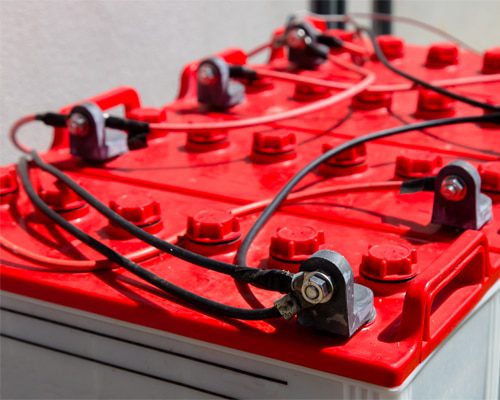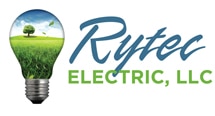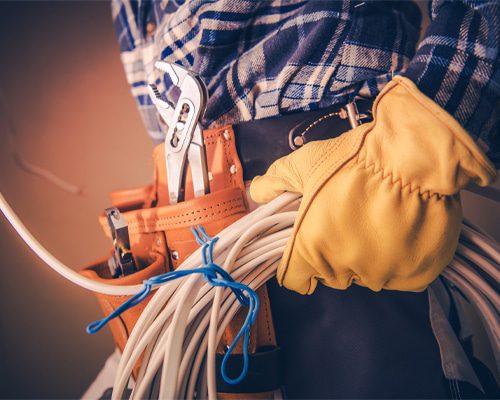Back Up Power Options
The coronavirus pandemic is affecting every person across the globe in some way. Here in the States, one of the most troublesome issues is the need to keep businesses operating while also keeping people safe.
South Carolina, like all of the states, is under stay-at-home orders. Those orders were set to expire but are now being extended by at least two more weeks. These stay-at-home orders require all nonessential businesses to close. That means a lot more people are working at home so that businesses can operate, at least partially.
Working from home is nothing like working in an office, for many reasons. One of the biggest issues with working from home is that you don’t have the same electric service and backups as a commercial building. That can put you at risk of losing time, missing deadlines, and damaging your laptop and other electronics.
If you will be working from home, you should make sure that you are protected with a backup power supply, and an electrical system able to handle the switchover in case of a blackout. This may require some upgrades to your electrical system. Here’s what you need to know about power issues and solutions.
Brownouts vs Blackouts
Most people think of backup power supplies keeping things running during a blackout, or total loss of power. However, the right backup systems can actually protect you against brownouts as well. A brownout is when the voltage coming into your home is decreased. This can happen due to stress on the electrical grid, or it can be scheduled by the utility as a way to lighten the load on the grid and keep things running.
If you get the right backup power equipment, you can mitigate downtime from brownouts as well as blackouts. In fact, the right equipment will also protect your devices from power surges.
Common Causes of Power Interruption
There are a lot of different potential causes for interruptions in power. Aside from the problems that the pandemic presents, storms, accidents, or aging or malfunctioning equipment happen at any time to cause an outage. In fact, there are likely at least some people without power in Lexington right now.
Storms are the biggest culprit for long power outages, and they can cause significant damage to utility equipment. The type of damage done and the potential for outages depends on the type of storm. Summer weather can also lead to outages.
- Tornados can take out power lines and transformers.
- High winds can pull down power lines or poles.
- Lightning can strike transformers or light poles.
- Hurricanes and heavy rains can flood the area and disrupt in-ground power lines.
- Heat waves cause more people to constantly run their air conditioners, burdening the grid.
- Digging without checking with the utility company can lead to interruptions in power for the neighborhood.
- Car accidents can end with a vehicle crashing into an electric pole, knocking it down or loose.
- Animals can interfere with in-ground power lines.
- Of course, weather isn’t the only thing that can take out transformers and power lines.
Additional Burdens of COVID-19
Unfortunately, many areas are experiencing a burden on the electric service. Whereas planned brownouts are usually only done in heat waves when everyone is running their air conditioners, everyone staying at home is increasing power use exponentially. This is likely to lead to more scheduled brownouts than usual.
Another issue with power outages is that there are fewer utility workers available to maintain and repair the electric grid and equipment. The utility company banks on being able to call for help from other utility companies in the state and surrounding areas when there are major outages or repairs needed. However, all states are under stay-at-home orders with limited travel, and it is not feasible to get outside help at this time. That means that when power outages do happen, it may take longer than usual to get things up and running again.
Impacts of Power Outages When Working from Home
It is obvious that power outages can cause you to have downtime and missed deadlines. But these power outages and fluctuations could actually cause damage to your laptop or other work equipment.
- Electrical surges put equipment at risk of permanent damage. At the least they shorten the life of your device.
- Electronics often do not operate or charge with reduced voltage. Some electronics will shut down automatically when the voltage decreases. This can corrupt or lose files. In addition, repeated brownouts can cause lasting damage to a laptop, or shorten its life.
- Power fluctuations while a device is charging can short out the charger or damage the device so that it no longer holds a charge.
Backup Power Solutions
Just like your company has backup power equipment, so too can you have similar measures in place at home. Some backup power solutions can be implemented without electrical upgrades, although they are not as effective for protecting laptops and other devices. For the best backup systems, you will likely need some upgrades.
When most people think of residential power backups they think of generators. There are a lot of different generators out there. You can get ones that will power a big or small portion of your home. You can get ones powered by a rechargeable battery, gasoline, propane, wind, or solar. Generators can last 1 to 3 days, depending on the specifications of the one you purchase, and

how much you are trying to power with it. Generators are generally an affordable power solution, but they are not ideal for protecting electronics while working from home.
Battery backup systems are usually the solution for most commercial applications, but you can have them installed in your residence as well. Battery backup systems can also run either just a portion of your home or the entire home. Specifications for battery backup systems can vary greatly, and it is best to get advice from an electrician before making a decision on the right system.
While generators are usually sufficient to provide necessary power during a storm or temporary outage, battery backup systems are more reliable for frequent use. With the looming uncertainties of the coronavirus pandemic, a battery backup may be more suitable. If you contact us, we will be happy to evaluate your needs and determine the best power backup system for you.
Uninterrupted Power Supply
Regardless of whether you use a generator or a battery backup system, it is a good idea to also have an uninterrupted power supply (UPS) installed. This electrical upgrade will automatically kick on your backup power when it senses changes in the electrical service coming into the house.
Without a UPS, the backup power system will have to be started manually. It will also not work unless it is a complete power outage. A UPS will detect fluctuations in power and take action automatically. If there is a surge, it protects your devices. If there is a decrease in voltage, it will kick in backup power to supplement.
This is the best way to ensure that you will not have any downtime, nor will you lose files or work. It takes only a second for the UPS to kick on the backup power. This means that you will be protecting your devices while staying productive.
Getting Electrical Upgrades During Coronavirus
You may think that getting electrical upgrades needs to wait until after the pandemic. However, we recognize that it is now, while you are working from home, is when you need these upgrades. We will happily come to your home and install an uninterrupted power supply and battery backup system. Please contact us to get started today.

